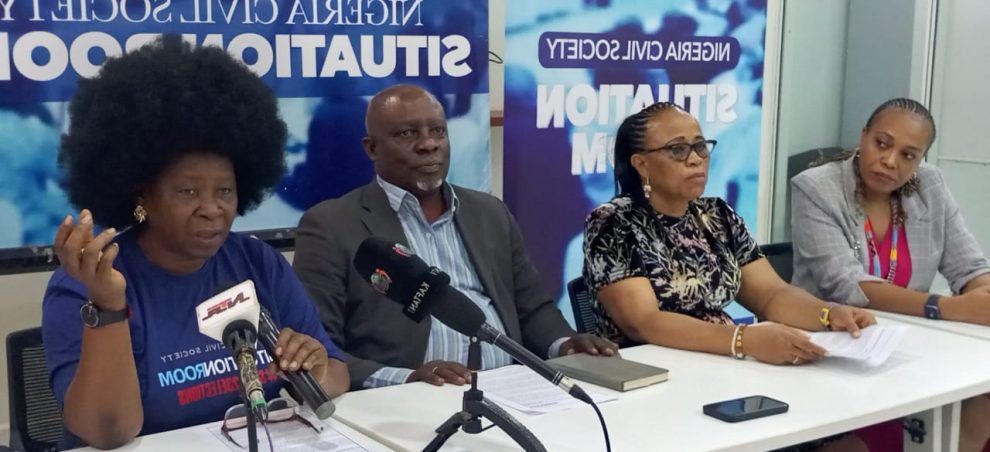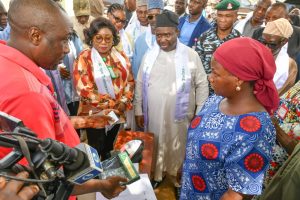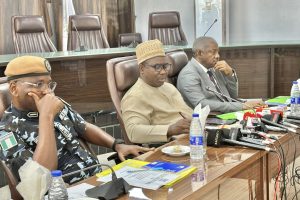ABUJA, NIGERIA — A leading Nigerian civil society coalition has warned that the country’s democracy remains “fragile” and is at a “crucial juncture,” citing systemic corruption, electoral mistrust, and growing public disillusionment.
In a statement signed by the group’s conveners, Yunusa Ya’u, Franklin Oloniju, and Mimidoo Achakpa the Nigeria Civil Society Situation Room said the nation’s 26-year-old democratic journey is being challenged by institutional weaknesses and a “growing disillusionment.” The group, which monitors governance and elections, highlighted what it described as a “systematic attempt to decimate political opposition” and to undermine the independence of the election management body. The statement was timed to coincide to with the International Day of Democracy,
The statement also pointed to a series of compounding challenges to Nigeria’s stability, including:
- The Economy: While the government has celebrated bold reforms like the removal of fuel subsidies, the Situation Room noted that these have not prevented widespread economic hardship, including inflation, a weakened currency, and poverty. The group warned of a “strong link between democracy and poverty” when democratic governance fails to deliver social amenities and public services.
- Insecurity: The report stated that terrorism, banditry, and communal conflicts continue to disrupt national stability. It highlighted persistent ethnic tensions and clashes between herders and farmers in states such as Plateau, Benue, and Taraba, which have resulted in thousands of deaths and mass displacement.
- Electoral Integrity: The civil society group noted that despite technological upgrades like the Bimodal Voter Accreditation System (BVAS), the 2023 general elections were “marred by logistical failures, voter suppression, and judicial controversies.” The ongoing Continuous Voter Registration (CVR) exercise was praised as a “welcome development” but was also described as being “fraught with serious challenges” including low turnout, technical glitches, and public mistrust.
To address these issues, the Situation Room called for the expansion of physical registration access, the deployment of mobile registration units, and public awareness campaigns. It also condemned the actions of the Senate for denying a legislator, Senator Natasha Akpoti, access to the National Assembly.
The group concluded that the durability of Nigeria’s democracy will depend on its ability to bridge the gap between reform and inclusion.





Add Comment